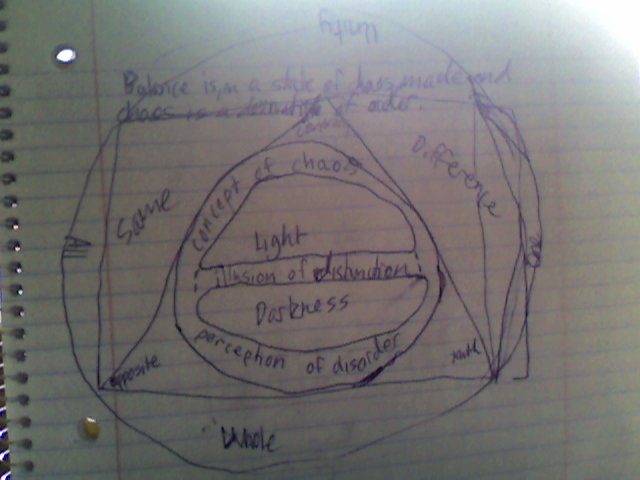Article from awhile ago...
iNxj theme: You should know! How do you not see it? It's so clear;c'mon, it's right there in front of you!!! Jesus Christ, connect the dots already, is it really that hard? Really?!
objectively=for another, subjectively=for self
The more I have been researching it, the more I have been stumbling upon these patterns that really stick out to me. One of them would be the tendency for thinking to be associated with objectivity while feeling is associated with subjectivity. When you analyze the way the potential answers to a question like, "Which do you value more, mercy or justice?","Do you view yourself as more subjective, or more objective?", you find what it really is asking a person to show is whether or not they believe there is an objectively right answer, or that the right answer may vary from person to person, relativistically. People who believe there is one right answer while there are many wrong answers will not be as merciful, and will seek revenge for actions he thinks that are "unjust" or "wrong", which really translates into "incorrect". This, they will view as justice. and think the judgements they pass and actions they take to correct the error are justified. Thinkers, silently claiming objectivity, may try to establish for another what would be best for them, based upon their own experiences and understanding, while that same person in a similar situation would react differently; maybe not thinking the situation is wrong or recognizing a problem at all.
Fi/Te(Te/Fi) VS. Fe/Ti(Ti/Fe)
(Fi)Te/Te(Fi) -> justice seeking, less relativistic, causing conflict if it seems like somebody has crossed their moral standards justifying it as being right, "Right" and "Wrong" dichotomy (based on consistency in action alone/perceived authenticity) + "Efficient" and "Inefficient" (based on external standards of what they would correspond to in terms of their culture, team, etc.)
(Ti)Fe/Ti(Fe) -> harmonious environment, avoiding unnecessary dispute and trying to do what is best for the all regardless of personal feelings, "Helping" and "Hurting" dichotomy (based on feeling responsible for hurting other people feelings or not helping them when they are hurt, when the option is in mind) + "Consistent" and "Inconsistent" (based on internal structures separate from external standards and checking for inconsistencies within the mental structure, or in theories)
iNxj theme: You should know! How do you not see it? It's so clear;c'mon, it's right there in front of you!!! Jesus Christ, connect the dots already, is it really that hard? Really?!
objectively=for another, subjectively=for self
The more I have been researching it, the more I have been stumbling upon these patterns that really stick out to me. One of them would be the tendency for thinking to be associated with objectivity while feeling is associated with subjectivity. When you analyze the way the potential answers to a question like, "Which do you value more, mercy or justice?","Do you view yourself as more subjective, or more objective?", you find what it really is asking a person to show is whether or not they believe there is an objectively right answer, or that the right answer may vary from person to person, relativistically. People who believe there is one right answer while there are many wrong answers will not be as merciful, and will seek revenge for actions he thinks that are "unjust" or "wrong", which really translates into "incorrect". This, they will view as justice. and think the judgements they pass and actions they take to correct the error are justified. Thinkers, silently claiming objectivity, may try to establish for another what would be best for them, based upon their own experiences and understanding, while that same person in a similar situation would react differently; maybe not thinking the situation is wrong or recognizing a problem at all.
Fi/Te(Te/Fi) VS. Fe/Ti(Ti/Fe)
(Fi)Te/Te(Fi) -> justice seeking, less relativistic, causing conflict if it seems like somebody has crossed their moral standards justifying it as being right, "Right" and "Wrong" dichotomy (based on consistency in action alone/perceived authenticity) + "Efficient" and "Inefficient" (based on external standards of what they would correspond to in terms of their culture, team, etc.)
(Ti)Fe/Ti(Fe) -> harmonious environment, avoiding unnecessary dispute and trying to do what is best for the all regardless of personal feelings, "Helping" and "Hurting" dichotomy (based on feeling responsible for hurting other people feelings or not helping them when they are hurt, when the option is in mind) + "Consistent" and "Inconsistent" (based on internal structures separate from external standards and checking for inconsistencies within the mental structure, or in theories)
